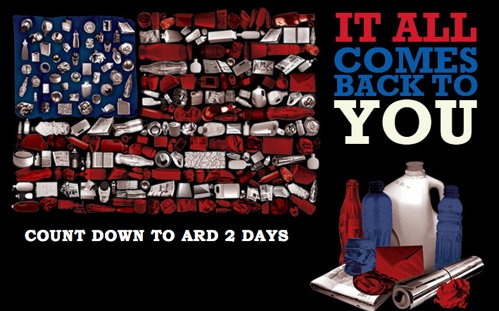
 Sweden has some of the best recycling rates on the planet. Over 95% of glass gets recycled there, and 85% of newspapers, 70% of metal and 65% of plastic (half of that is burned). And Sweden doesn't stop - this month it adds soft plastic packaging to the list of things consumers can toss in the recycling bins, while next January it will start recycling all different types of batteries (only some are currently recycled).
Sweden has some of the best recycling rates on the planet. Over 95% of glass gets recycled there, and 85% of newspapers, 70% of metal and 65% of plastic (half of that is burned). And Sweden doesn't stop - this month it adds soft plastic packaging to the list of things consumers can toss in the recycling bins, while next January it will start recycling all different types of batteries (only some are currently recycled).
What's the secret to this recycling success? Well, it's only partially a bottle-return system and conscientious consumers. The same myths (that packages just get mixed and trashed at the dump, that driving to a recycling center cancels the benefits) that stop people in the U.S. from recycling also hold true in Sweden.
The real secret to Sweden's still increasing recycling rates is that recycling is not run by the government or the various municipalities in the country - it's run by the Forpacknings och tidningsinsamlingen (FTI), (in English the Packaging and Newspaper Collectors), which in turn is owned by the largest food and newspaper industries.
In other words, producer responsibility is alive and well and living in Sweden. Since 1995 FTI has been required by law to be responsible for packaging waste, and now the group has 5,800 recycling stations that it operates and maintains in Sweden.

Or, maybe not?
Nothing like that exists in the U.S. where a hodgepodge of community, state, and private trash collectors have shared both the burden and the spoils of recycling. Steel is the best recycled material in the U.S. waste stream today - rates are over 75%. But in overall municipal waste recycling, the U.S. is at about 34 percent.
Saturday is America Recycles Day, but the recycling industry is experiencing the same recession as the rest of the country. Some manufacturers have engaged in "product take back" programs - most notably in electronics, where the damage is felt most keenly from toxic components, and conversely the resources to be recovered are significant - 10 states just got new electronics drop boxes from a joint effort between Panasonic, Toshiba, and Sharp. California is also furthest ahead in pushing for extended producer responsibility.
Overall, though, what is most missing in the U.S. is a universal idea that producers should be responsible for the waste they create (!).
The U.S. will never be Sweden, so perhaps the answer is more rewards. RecycleBank is considered a hot green prospect by Newsweek. In communities the company operates in, it offers per-pound incentives for curbside recycling (bins have RFID sensors to help weigh the trash) and gives participants points they can use for everything from drugstore discounts to grocery shopping. It's frequent flier miles for recyclers, as Newsweek noted.
Recycling rates tend to double, triple or even shoot up ten-fold in the communities in nine states where RecycleBank operates. That is a fantastic trend, and though RecycleBank isn't poised to make a company profit until 2010, it is an encouraging innovation.
Hopefully, however, once everybody starts recycling (for money or not), we'll take a minute to wonder why it's so easy to fill a 96-gallon bin with packaging every month. When we do, it will be time to turn our attention to producers and start to demand that they both design their products for end-of-life recycling and take responsibility for making it happen.
More from TreeHugger on Recycling
A New Age for Recycling...Prod Producers or Reward Consumers?
::Recycling is Bullshit: Make Nov. 15 Zero Waste Day, Not America Recycles Day
::Creative Recycling: Fridgehenge
::Four Ways to Earn Cash From Recycling
::Shipping Waste 10,000 Miles Still Better Than Landfilling
::Terracycle and Sponsored Waste
::Toronto Considering Deposits on Everything